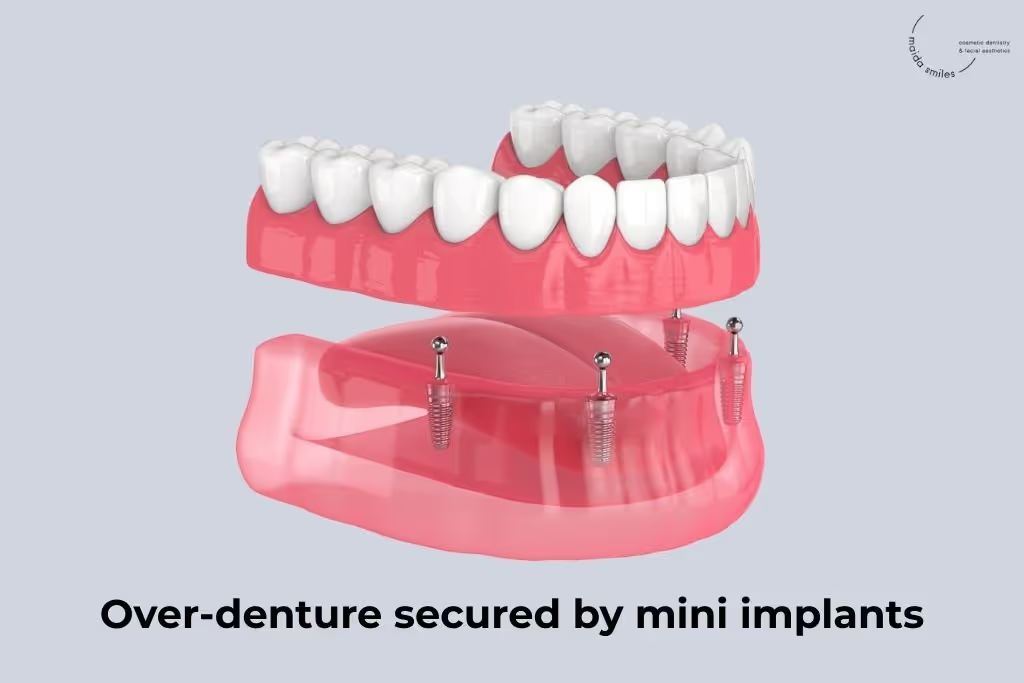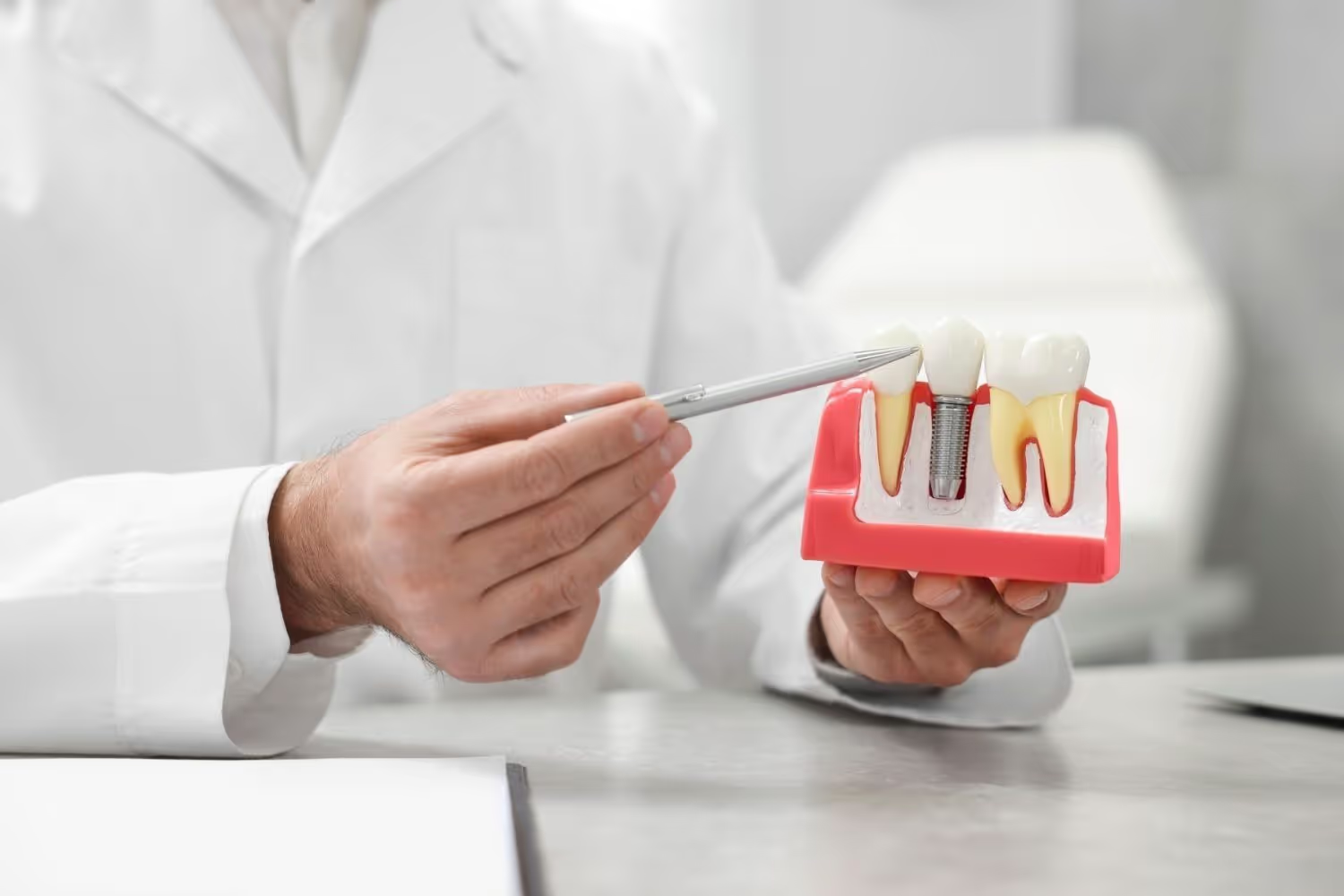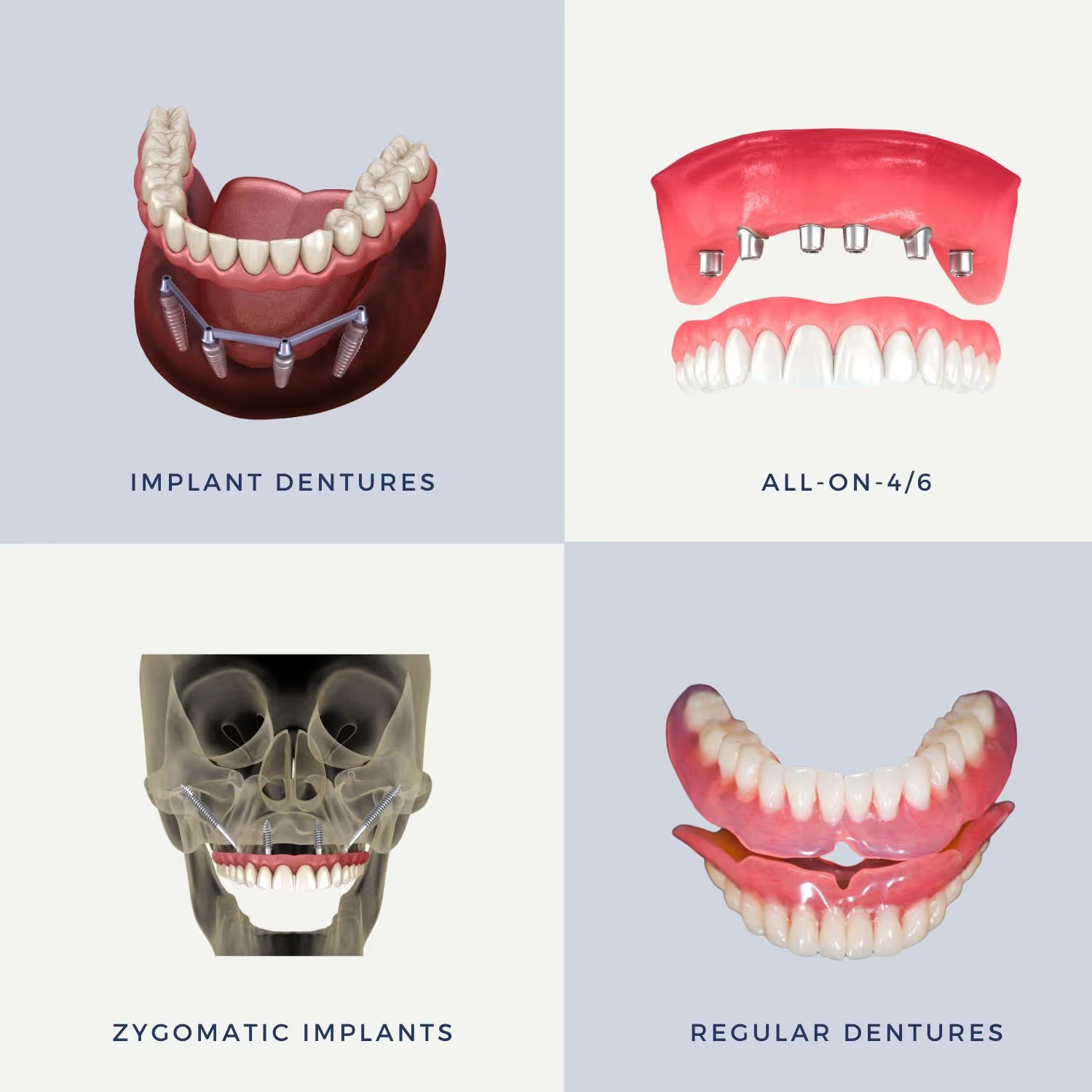

September 18, 2025
Considering dental implants as a tooth replacement option to support artificial teeth? Heard of mini dental implants and seen that they’re faster and cheaper?But are they better, and will they be suitable for your case? Let’s find out…
[ninja_tables id="20062"]

Sound great? While mini dental implants offer reduced costs and minimally invasive surgeries, they do have a shorter lifespan and not always an option for all patients.Mini dental implants won’t be suitable in every case, and you’ll likely be recommended standard implants, especially if you need to replace multiple teeth.Explore mini dental implants in more detail.

Known for their longer lifespan, traditional implants tend to provide better support, stronger chewing forces and overall stability for multiple missing teeth.
Traditional dental implants are notoriously known for their longer healing times. There needs to be a break after placement to allow the titanium posts to fuse to the jaw, but this is to ensure long-term success and stability.Patients must have sufficient bone volume density to be suitable for conventional implants; failing that, they might have to undergo pre-prosthetic procedures like a bone graft.

Dental implants are available in standard and mini (MDIs). Comparing their features, the main differences lie in their durability, strength, size and overall function. But they’re not suitable for the same types of cases.Mini dental implants are typically used in cases where we need to stabilise an over-denture, particularly in the lower jaws, for example, to provide a firmer fit.MDIs in this instance, can be made to fit your existing denture, ensuring it’s secure and preventing it from slipping out of place, removing the need for denture adhesives, glue and bonding agents.

Mini dental implants certainly offer additional pros and advantages compared to traditional dental implants. But the choice is not always yours alone.As mini dental implants are only prescribable in a certain number of situations, an implant dentist like Dr Gutierres might only recommend them in cases where patients have limited bone and grafting is not an option.However, which type of implant you receive will ultimately depend on your oral anatomy, function and long-term goals.